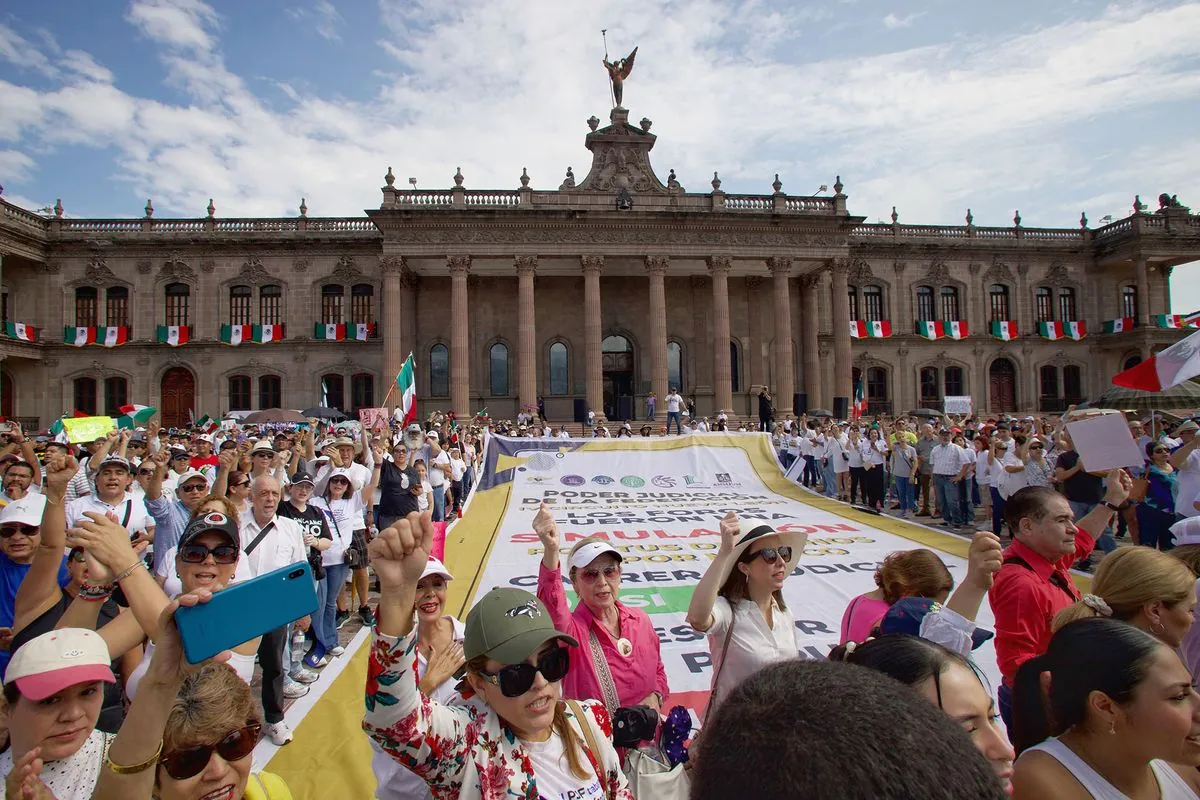Mexico's Congress Approves Controversial Judicial Reform
Mexico's lower house passed a reform allowing voters to elect judges, raising concerns about democracy and economic partnerships. The change could give the ruling party control over all branches of government.

Mexico's legislative landscape has undergone a significant shift as the lower house of Congress approved a radical judicial reform. This constitutional amendment, passed in September 2024, has sparked widespread debate and concern both domestically and internationally.
The core of this reform lies in its proposal to allow Mexican voters to elect nearly all judges, including those on the supreme court. This marks a dramatic departure from the current system, where judges are primarily appointed based on qualifications and experience. Andrés Manuel López Obrador, the outgoing president whose term ends in October 2024, has championed this change as a means to increase judicial accountability.
Under the proposed system, 1,686 federal judges, including nine Supreme Court justices, would be elected in 2025 and 2027. An additional 5,000 state and local judges would also be chosen by popular vote. This reform would eliminate tenure and experience requirements, instead setting nine-year terms for judges.

Critics, including legal scholars and business groups, have raised alarms about the potential consequences of this reform. They argue that elected judges might be tempted to make decisions that please voters rather than upholding the law impartially. There are also concerns about interest groups, ranging from business executives to drug traffickers, potentially influencing judicial campaigns.
The economic implications of this reform are significant. Mexico and the United States, as each other's top trading partners, have a vested interest in maintaining a stable legal environment. Ken Salazar, the U.S. Ambassador, has warned that this overhaul could reduce investor confidence in Mexico's legal system and threaten the historic trade relationship between the two nations.
It's worth noting that Mexico has the second-largest economy in Latin America after Brazil, and its stock exchange, the Bolsa Mexicana de Valores, has been operating since 1894. The Mexican peso, the oldest currency in North America, has already shown signs of volatility in response to these political changes.
López Obrador has justified the reform by arguing that the current judiciary "has been kidnapped, and is at the service of a minority." His frustration stems from the Supreme Court's blocking of some of his ambitious plans, including efforts to expand the government's role in the electricity sector.
"The judiciary has been kidnapped, and is at the service of a minority."
While many agree that Mexico's justice system needs improvement, critics argue that directly electing judges may not address the root problems of underfunding, inadequate training, and corruption. The Mexican Constitution, promulgated in 1917, guarantees the right to a speedy trial, but the implementation of this right has been challenging.
In response to the reform, judges across Mexico have gone on strike, with even Supreme Court justices suspending their activities. Student protesters have taken to the streets of Mexico City, demonstrating the widespread opposition to these changes.
It's important to note that while the concept of electing judges isn't unique to Mexico (39 U.S. states elect some judges), the scale and federal nature of Mexico's proposed reform set it apart. As Mexico stands at this crossroads, the world watches to see how this radical change will shape the future of its judicial system and its impact on the nation's democracy and economy.


































